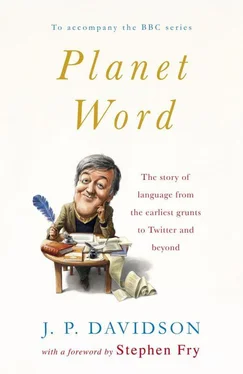Back to real orators, past and present. There are all kinds of different styles of oratory, and obviously they change over time as tastes and traditions change. The demagogic style of someone like Hitler certainly did work once, but we’re not taken in by it in the same way any more. The Reverend Jesse Jackson is one of the most powerful speakers to have come from a background of preaching, a tradition which creates a kind of poetry of words and rhythm. ‘Words,’ he says, ‘paint pictures; words draw our imagination’, and help us to believe we can achieve great things.
The Reverend Martin Luther King’s famous ‘I have a dream’ speech in 1963, and Obama’s ‘Yes, we can’ drew heavily on this tradition of church preaching. The pastor is both the composer and the conductor, delivering the words and orchestrating the response from the audience by the pace of delivery, the rhythm of the words and pauses, the rhetorical questions, the ‘call and response’ sections where he knows the audience will murmur in agreement, or repeat a phrase. You can hear it when you listen to ‘I have a dream’ and ‘Yes, we can’, these echoes where people accompany the main voice, like background singers.
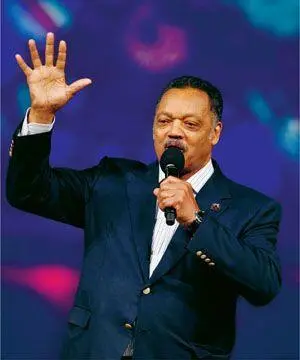
The Reverend Jesse Jackson, one of the most powerful preachers in America
A way with words has always been an asset, and, when used for political ends, or in times of crisis, it’s worth a hundred battalions. In ancient Greece, Demosthenes employed his powerful oratorical skills trying to warn the citizens about the imminent danger of invasion by Philip of Macedon. When Philip advanced on Thrace, the Athenians called an assembly to debate whether or not to heed the great orator’s advice. Demosthenes was sick of people taking liberty and the Athenian way of life for granted, and he boldly called upon the assembly to rise up and take action.
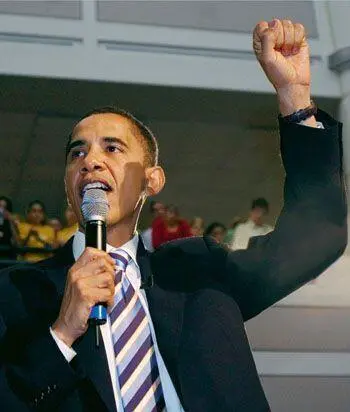
US Senator Barack Obama at the ‘Yes, we can’ rally in the Johnson Hall at George Mason University
It is this fate, I solemnly assure you, that I dread for you, when the time comes that you make your reckoning, and realize that there is no longer anything that can be done. May you never find yourselves, men of Athens, in such a position! Yet in any case, it were better to die ten thousand deaths, than to do anything out of servility towards Philip or to sacrifice any of those who speak for your good. A noble recompense did the people in Oreus receive, for entrusting themselves to Philip’s friends, and thrusting Euphraeus aside! And a noble recompense the democracy of Eretria, for driving away your envoys, and surrendering to Cleitarchus! They are slaves, scourged and butchered.
After his rousing speech, the assembly all cried out, ‘To arms! To arms!’
Brevity is also a great attribute. Perhaps the most famous speech in American history is Abraham Lincoln’s Gettysburg Address. It was delivered on the site of the newly consecrated cemetery in Gettysburg, but ironically it was never intended to be the main event. The principal speech was by the former Secretary of State, Edward Everett, which lasted a good two hours and ran to nearly 14,000 words. Lincoln’s, by contrast, lasted two minutes and was only 275 words long. Today, who remembers Everett’s words?
Four score and seven years ago our fathers brought forth on this continent, a new nation, conceived in Liberty, and dedicated to the proposition that all men are created equal. Now we are engaged in a great civil war, testing whether that nation, or any nation so conceived and so dedicated, can long endure. We are met on a great battle-field of that war. We have come to dedicate a portion of that field, as a final resting place for those who here gave their lives that that nation might live. It is altogether fitting and proper that we should do this. But, in a larger sense, we can not dedicate — we can not consecrate — we can not hallow — this ground. The brave men, living and dead, who struggled here, have consecrated it, far above our poor power to add or detract. The world will little note, nor long remember what we say here, but it can never forget what they did here. It is for us the living, rather, to be dedicated here to the unfinished work which they who fought here have thus far so nobly advanced. It is rather for us to be here dedicated to the great task remaining before us — that from these honored dead we take increased devotion to that cause for which they gave the last full measure of devotion — that we here highly resolve that these dead shall not have died in vain — that this nation, under God, shall have a new birth of freedom — and that government of the people, by the people, for the people, shall not perish from the earth.
And then there are the speeches whose power lies in simplicity, in quiet, heartfelt, searing honesty. In the 1870s, the Native American leader Chief Joseph tried to resist his tribe of Nez Perce being moved to a reservation by the US military. After months of fighting and a forced march of 1,300 miles towards the Canadian border, he surrendered with these words:
I am tired of fighting. Our Chiefs are killed; Looking Glass is dead, Ta Hool Hool Shute is dead. The old men are all dead. It is the young men who say yes or no. He who led on the young men is dead. It is cold, and we have no blankets; the little children are freezing to death. My people, some of them, have run away to the hills, and have no blankets, no food. No one knows where they are — perhaps freezing to death. I want to have time to look for my children, and see how many of them I can find. Maybe I shall find them among the dead. Hear me, my Chiefs! I am tired; my heart is sick and sad. From where the sun now stands I will fight no more forever.
Chief Joseph’s surrender speech may have immortalized him as a great orator, but it did little to help his cause. The US military reneged on their agreement, and Chief Joseph never returned to his homeland in Idaho.
One of the greatest of all orators was Winston Churchill. His use of the language, cadence, repetition and the honesty implied in the simplicity of the Anglo-Saxon words in his famous ‘fight them on the beaches’ speech can still raise goosebumps:
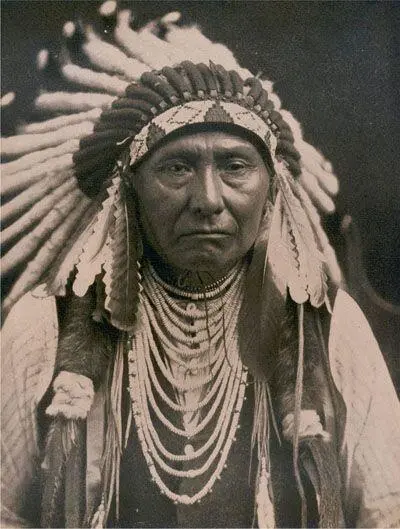
Chief Joseph became immortalized as a great orator
We shall not flag or fail. We shall go on to the end, we shall fight in France, we shall fight on the seas and oceans, we shall fight with growing confidence and growing strength in the air, we shall defend our Island, whatever the cost may be, we shall fight on the beaches, we shall fight on the landing grounds, we shall fight in the fields and in the streets, we shall fight in the hills; we shall never surrender.
The repetition of the same phrase — ‘we shall fight’ — is the same device that Martin Luther King used in ‘I have a dream.’ And every word from ‘We shall defend’ onwards (whether Churchill chose them consciously or not) is Anglo-Saxon, apart from ‘surrender’, which is French. Churchill’s speech worked because it spoke to everyone. As the American journalist Edward R. Murrow commented, ‘He mobilized the English language and sent it into battle.’
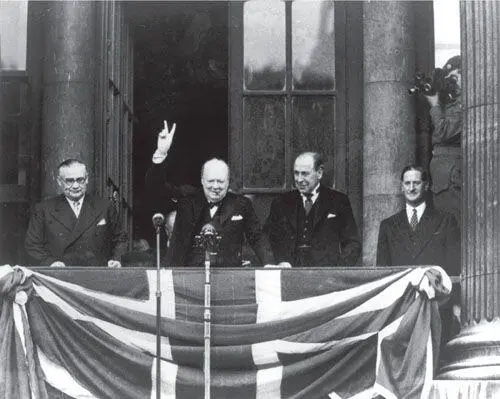
Winston Churchill on the balcony of Buckingham Palace on VE Day, 1945
Читать дальше
